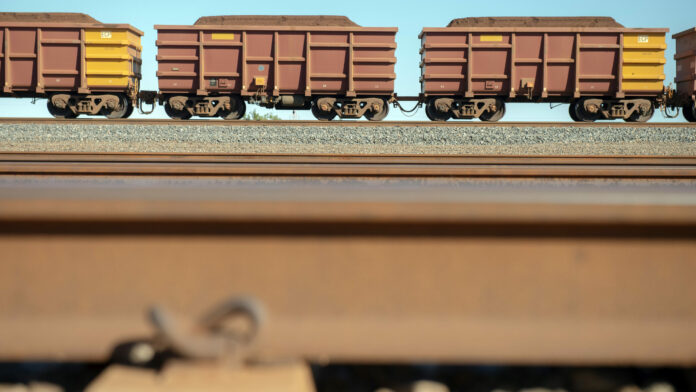
KUMBA Iron Ore will report a 38% to 44% decline in headline and basic earnings for its 2022 financial year as lower market prices, a fall in sales, and the write-down of its Kolomela mine weighed on the Anglo American firm.
In a trading and production update – which detailed a host of rail, port and inventory problems – Kumba said headline earnings for the 12 months ended December would come in at R18.7bn and R20.6bn. Basic earnings of an estimated R14.7bn to R16.3bn – representing a year-on-year decline of 51% and 56% – was partly down to “an impairment on the asset value of Kolomela mine as a result of revisions to the forecast production and cost profile in the latest life of asset plan”.
“Headwinds at Kolomela” also accounted for an 8% decline in full year iron ore production which came in at 37.7 million tons (Mt) compared to 40.8Mt in 2021. But by far the greater long-term concern for Kumba is “rail constraints” posed by South Africa’s state-owned company, Transnet.
Serial underperformance of the rail network, exacerbated by power outages and high incidence of vandalism, theft and sabotage, has resulted in massive backlogs in the country’s bulk minerals pipeline.
For Kumba, Transnet’s deficits resulted in a 9% decline in fourth quarter sales which totalled 36.6Mt in 2022. Much of the backlog was suffered in the fourth quarter where sales were 35% down owing to a strike at Transnet’s ports.
There are low levels of stock at Transnet’s Saldanha Port and high levels of inventory at the mines, especially Kolomela where production had to be reined-in because its stocks were at capacity. Finished stock as of December 31 was reported at 7.8Mt, nearly two million tons more than at the previous year-end.
“Transnet’s logistics remain a concern with poor performance continuing subsequent to the two-week wage strike in October 2022 and the annual maintenance shutdown in November 2022,” it said.
Kumba added that power curtailments would represent “increasing risks” to its business. It said: “Load curtailment by Eskom has increased and while we have minimised the impact on production … managing our operations around the availability of power supply represents an increasing risks for our operations”.
Helpfully, Kumba received an average iron ore price of $113 per wet metric ton which was 13% above the market benchmark. Rand depreciation against the dollar also helped contain costs. Cash costs totalled $40/t for the year which was better than guidance of $44/t. On a rand basis, Kumba’s Sishen mine achieved a unit cost of R480/t (guidance of R500 to R525/t) while Kolomela achieved R490/t against its guidance of R505 to R525/t.










